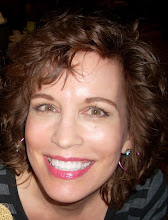
The Happy is what my sister and I call being positive. She’s says I’m a natural at it.
I do think some people are born with a naturally sunny outlook. I may be one of those. And overall, it’s pretty cool. But like everything in life, a “good” trait always has a down side, just like a “bad” trait always has a good side.
If you are a positive person sometimes you are not allowed to have a bad day. As a writer, I have them. Sometimes, gasp, I have a pouty week after a particularly hard rejection. If I do complain which I rarely do, what I often get back is “oh you’ll make it. You always make it,” as if I never suffer.
Also, some people equate cheerfulness with a less than stellar intellect. As a writer, (and this is true for all arts), many people believe you must wallow in the depths of despair to produce Great Work, as if writing about happy things is less important, or that a positive person can’t write about sad things.
Finally, some folks just don’t like being around happy people. I think the saying misery loves company has more than a grain of truth. Happy can also be seen as fake, as in there’s no way anyone can be that happy.
Even with these downsides I’ll take my Pollyanna outlook. Being happy is, well, wonderful. I get up every day excited about what might happen. Usually. And after coffee. And I do think everything will work out for me.
I had a friend ask what I thought the components of being happy were, in other words, how does it work? How can anyone, even those born to be Eeyore, be more like Pooh?
Here’s what I think. Like many behavioral descriptors, “happy” does not function as an adjective, but as a verb; that’s why I call it doing the happy. It doesn’t just plunk into your lap.
So. Number one. You must consider carefully what does make you happy and do more of that, but just as importantly, jettison stuff that doesn’t. This sounds simple but in practice can be very difficult.
Which is why number two is the putting into practice part. As a writer, I can say writing makes me happy. OK, then I need to do that. But I ALSO must get rid of unwanted activities that may thwart my writing. What else? Getting published at major house would make me happy. We all know the answer to that is much marketing work and perseverance, which may make me happy in the long run, but sucks in the present.
Which brings me to number three: dividing time between the present and the future/past. I believe this is crucial for happiness, and a delicate balancing act. Many spiritual teachings say that only in the now can true happiness occur, and I agree that feeling the sun on your face, snuggling with your partner, or a enjoying a sport are in the moment activities that bring pure joy. But…if you never consider yesterday’s lessons or plan for the future, you will never enjoy accomplishments or feel the thrill of reaching a goal. Not to mention paying the bills, which will certainly impact the here and now.
Number three is the hardest. For those of you who have never heard Jill Taylor speak, the video below is worth your time; if you can’t spare twenty minutes then forward to the last five. She describes finding that magical space between the present, the past, and the future better than anyone I have ever heard.
I’ve never met Jill, but I know her father, Hal. They are both explorers of the mind. Enjoy. And may you all find your happy place, writer or no.







